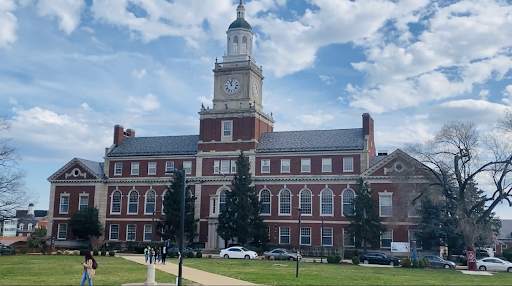
Howard University announced that it will waive debt from the Spring 2021 semester in efforts to increase the chances for students to complete their degree programs, according to President Wayne Frederick. This move comes after several other HBCUs offered student debt relief and discounted tuition following a year of receiving large donations.
“Howard will always devote as much of our resources as we can to minimize the challenges our staff and students encounter. And when we lack the resources to provide the level of assistance that we believe is necessary, we continue to identify and secure additional resources that can be used to provide direct support,” President Wayne A.I. Frederick said in the announcement.
Howard’s plan does not include all students. According to the email sent by the president on Aug. 27 the assistance labeled “HU COVID Need Support” in students’ epay accounts, is only for juniors and seniors who have an expected family contribution of $0 and who had an outstanding balance for the spring 2021 semester.
“I think it’s great that Howard University followed in the footsteps of other schools in clearing student balances during the pandemic,” junior marketing major Jorydn Allen said. “I believe this was a step forward from the tuition rebate program in place if you graduate in 4 years. I look forward to seeing how Howard University will continue to make education more accessible and affordable for all students.”
President Frederick also took the opportunity to highlight other measures the university has taken recently to help alleviate student financial burdens throughout the past year.
According to the email, the university plans to continue to leverage financial aid resources through the Graduation Retention Access to Continued Excellence (GRACE) Grant. This grant pays the remaining tuition and some mandatory fees for students who are most in need.
Though the university took these measures some students feel it wasn’t enough. Howard is only assisting students with an EFC of $0, but there are many students with balances whose EFC exceed that amount.
“I love that they are clearing balances for some people, but I wish more students were afforded the opportunity as well because we’ve all been affected by the pandemic one way or another,” LaNiyah Collins, a senior broadcast journalism major, said.
“Just because someone doesn’t have an efc of 0, doesn’t mean that they can afford to pay for college out of pocket,” she continued.
Several HBCUs have taken steps to fulfill their obligations to help students in need by using pandemic relief funds to clear balances. Clark Atlanta University announced they cleared student account balances for spring 2020- summer 2021 semesters on July 23.
Florida A&M University announced on July 31 that the university spent more than $16 million to clear student account balances. In their announcement, the university says this action benefitted almost 8,000 of their students.
Outside of pandemic relief, this financial support from HBCUs also takes steps to solve an issue that existed long before the pandemic began. According to a report by the United Negro College Fund, HBCUs enroll a 32% more low income students than non-HBCUs.
HBCU students, on average, accumulate more federal loan debt than students at other schools with the median for HBCU students being more than $26,000 and the median for other college students being less than $15,000. Overall, HBCU students face more unmet financial needs than students at other colleges.

